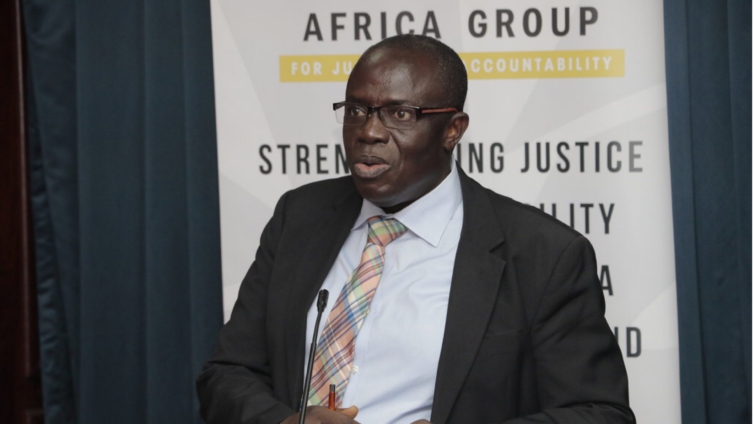A judge at the Appeals Court, Justice Dennis Dominic Adjei, has questioned the rationale behind financial demands made on applicants for information from public offices.
According to him, the financial demands attached to the Right To Information (RTI) Law make a mockery of the measures in place for fundamental human rights and must be scrapped.
He was speaking at this year's edition of the annual Lecture in Humanities at the Ghana National Academy of Arts and Sciences.
"A person who legitimately requires information but cannot pay for the prescribed fee would be denied his fundamental right to obtain information," he told the gathering.
The RTI Act was passed in 2019 to operationalise Article 21 (1) (f) of the 1992 Constitution, which stipulates that “all persons shall have the right to information, subject to such qualifications and laws as are necessary for a democratic society”.
The law gives people the right to access all sorts of information, apart from exempt information.
But one of the bones of contention has become the need to pay a fee for the production of certain kinds of information. Section 75 exempts certain types of information including information in the public interest from a fee.
Section 75
Fees and charges of public institution
(1) An applicant seeking access to information under this Act shall pay the fee or charge approved by Parliament in accordance with the Fees and Charges (Miscellaneous Provisions) Act,2009 (Act 793).
(2) Despite subsection
(1), a fee or charge shall not be payable for
(a) the reproduction of personal information of the applicant,
(b) the reproduction of personal information of a person on whose behalf an application is made;
(c) the reproduction of information which is in the public interest;
(d) information that should have been provided within the stipulated time under this Act;
(e) information to an applicant who is indigent;
(f) information to a person with a disability;
(g) time spent by an information officer or information reviewing officer in reviewing the information requested;
(h) time spent by an information officer or information reviewing officer in examining whether the information requested is exempt information; or
(I) preparing the information for which access is to be provided.
Many experts have cited the move as unfavourable if the recently-passed law is to see any fruition.
For instance, last year, the Media Foundation for West Africa (MFWA) dragged the NCA to court for demanding a ¢2,000 fee before it would provide it information on the list of radio stations it had shut down.
But the High Court presided over by Justice Gifty Agyei Addo, ruled that the NCA has the mandate to charge fees for its services hence the order to MFWA to pay ¢1,500; ¢500 less than the initial amount demanded.
Speaking at the event on May 5, Justice Dominic Adjei described such situations as unreasonable and posed a challenge, especially when their purpose was educational.
He insisted that "the fees to be paid by an applicant who applies to access information for public consumption is unreasonable, and the provision of payment of fees should be repealed," he added.
Monetising such a service, he believes, is not indicative of a democratic regime like Ghana's.
Latest Stories
-
National Cathedral: A-G must probe and surcharge if he finds breaches – Domelovo
15 mins -
National Security Ministry denies involvement in abduction of Sylvia Baah
20 mins -
Tears and pleas: Mpohor queenmother sobs over galamsey, poor roads during Mahama visit
38 mins -
Personal and political interests disrupting power sector – IES
1 hour -
Kumasi to host Joy Prime’s Big Chef Tertiary S2 finals
1 hour -
KOD hints at releasing an album before he turns 50
1 hour -
2024 Election: NDC accuses NPP of printing fake ballot papers
1 hour -
A democracy that fails to solve its own problems is a questionable democracy – Dr Muhammad Suleiman
1 hour -
Our fight against corruption is more talk, less action – Mary Addah
2 hours -
CHRAJ report settles matters against Kusi Boateng – Lawyer
2 hours -
Growing dissatisfaction with democracy demands citizen-centered governance – Mavis Zupork Dome
2 hours -
Ghana’s Democracy: Choices, not elections will drive change – Benjamin Offei-Addo
2 hours -
PRESEC-Legon marks 86 years with launch of groundbreaking AI lab on November 30
2 hours -
Elsie Appeadu of Delft Imaging makes the list of 100 Most Influential People Awards 2024 recipients
2 hours -
Limited citizen participation threatens Ghana’s democracy – Prof. Kwesi Aning
2 hours

